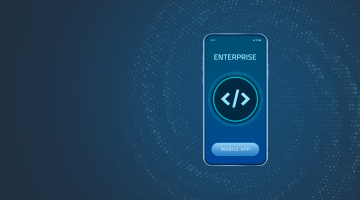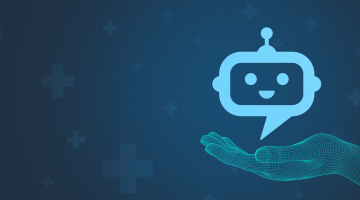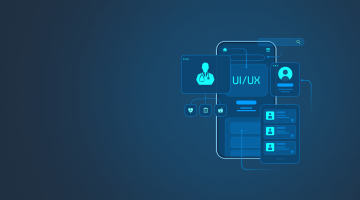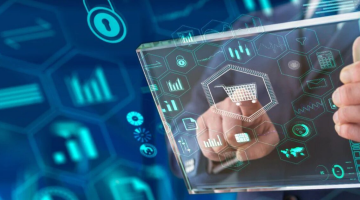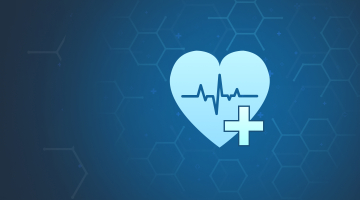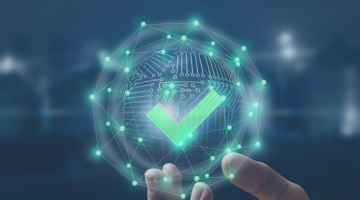

Healthcare software: 13 key types of healthcare software
Ancient Romans used to say that only two great blessings belonged to humans: good health and sanity. Indeed, people are always ready to invest a lot into what can help them feel good. On the other hand, healthcare service suppliers do their best to help clients meet health-related needs via new digital technologies. It seems healthcare software is becoming one of the most promising trends in the healthcare sector.
Why it is so and what types of software are available on the modern market are the subjects we are going to address in the present post. They can help us realize what future awaits the global healthcare sector in this digital era.
Why technology matters for healthcare
The desire to control health via gadgets is inherent in modern people who always hold smartphones in their pockets. Healthcare organizations, at the same time, are seeking opportunities to reduce their costs by means of software solutions. Healthcare software developers respond to both demands with corresponding applications. This is quite a generalized picture reflecting how things are going nowadays.
However, the reasons why medical software applications are gaining impetus are numerous. Some of them are positive, the others are negative from the public-health perspective:
- The number of chronic patients is increasing annually
- Digital technologies keep developing
- Medical literacy is growing thanks to the internet
- Patients are turning into clients while the healthcare system turns into service
- Healthcare uses new approaches to patients/consumers
- Competition among healthcare providers is becoming the main driver of innovations
- The cost of conventional health services is steadily growing
- People spend more and more time with their smartphones
- Digital presence is a must for any business, healthcare is no exception
- The COVID-induced “new normal” paradigm encourages everything to be remote
As we see, the current circumstances in both digital and social environments leave healthcare no chance to dispense with software solutions.
DICEUS has accomplished dozens of projects for healthcare. Learn what we do!
What software is used in healthcare?
This seemingly simple question has no single straightforward answer. The problem is in the scope of the topic: to determine which application is “truly medical” and which one just looks so is never an easy task. Many healthcare software developers consider any application to be health-related if it has at least one of the following three capabilities:
- automatically collects health data from people having diseases
- provides telemedicine services (communication with doctors, and the like)
- helps everyone adopt healthier behavior
However, official agencies such as the American FDA (Food and Drug Administration) and British MHRA (Medicines and Healthcare products Regulatory Agency) bring a substantial specification into the picture. They distinguish applications capable of turning a smartphone (tablet, laptop, wearables) into a medical device from all the rest. For example, an application that helps diabetics monitor their blood glucose levels belongs to that category.
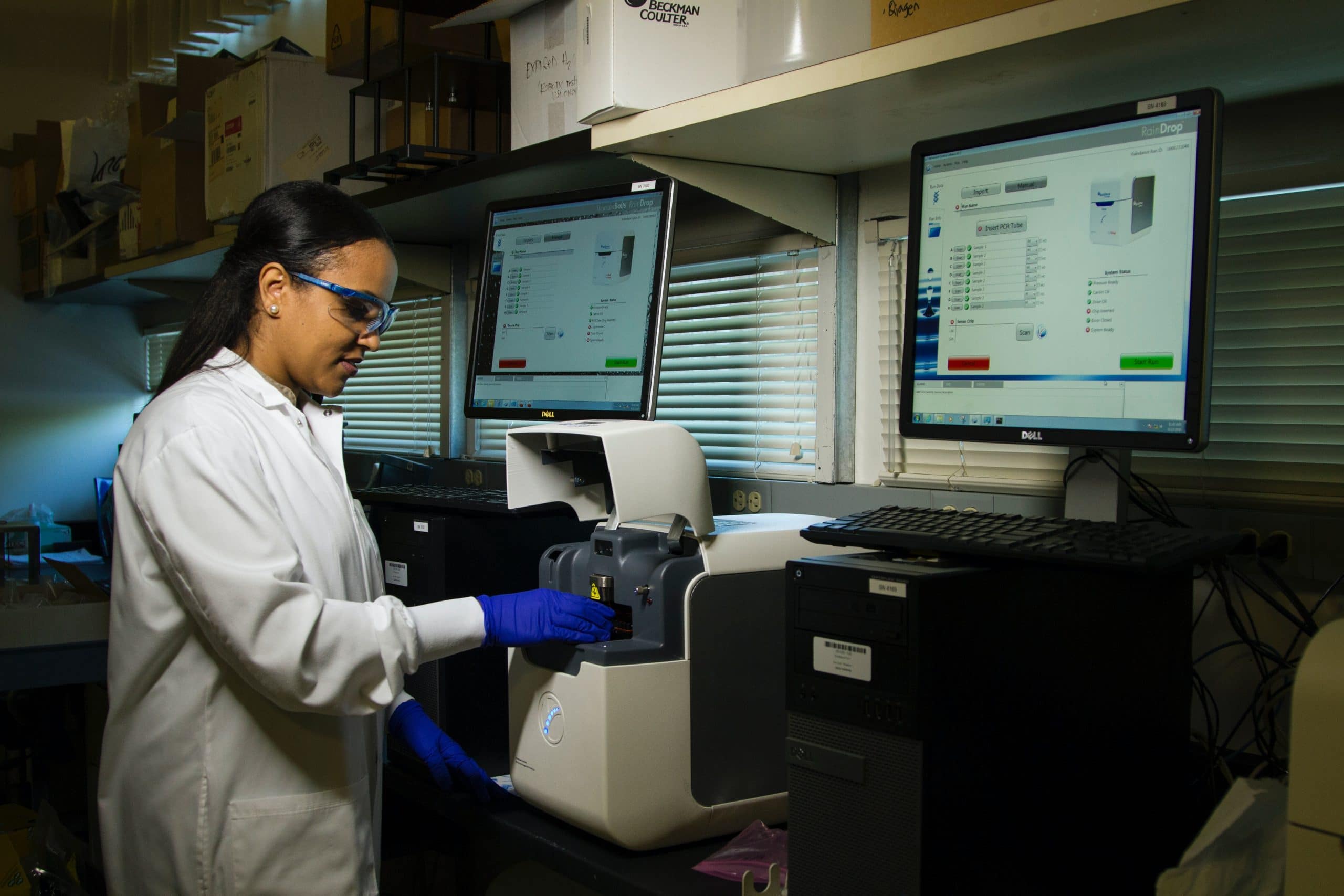
In other words, software products that threaten the life and health of people in the case of malfunction belong to the “true” medical software. Such high-risk applications are subject to meticulous testing before release. Specialized educational and diagnosis software as well as solutions designed to manage important hospital records share the high-risk status.
The “low-risk” healthcare technology products (remote communication with doctors, healthy lifestyle, etc.) belong to medical software only conditionally in such a context. But we should remember that no global authority capable of checking all health-related applications in app stores exists. In contrast to the US and GB, health ministries of other countries check apps randomly. Below you can learn more about various types of software solutions.
Do you know how healthcare uses the Internet of Things technology? Read our latest article “IoT in healthcare: 5 best examples”
Types of software used in the healthcare industry
The following types do not limit the variety of software — they just reflect some healthcare domains to which the majority of corresponding solutions belong. In addition to the given types, there are many hybrid applications that combine features of different types in a single product. Anyhow, the following classification provides an overview of strategic areas of healthcare software development.
1. Electronic Health Records
From a statistical standpoint, EHR is probably the most popular type of software used in the healthcare industry. Hospitals and clinics use EHR to collect and store information about their patients. Structurally, EHR is very similar to any CRM used in business. The difference is in the specific medical metrics applied to the personal data of patients in EHR.
Payment modules and personal portals for users are oftentimes integral parts of EHR systems. Those sections allow patients to perform many healthcare-around activities: paying for services, checking bills, tracking bedside notes, etc. EHR software can be divided into two subtypes: electronic patient record software that implies EHR as we define it, and electronic medical record software that comprises a narrower scope of specific data such as prescribed medication, dosage, procedures, and recovery progress.
2. Hospital Management
HMS systems and medical software used in hospitals offer various aspects of control and management. Hospital inventory, accounting, complaint handling, and many other day-to-day routines constitute the features of HMS systems.
Once automation of in-hospital processes is the objective of any hospital management software, electronic healthcare records form an integral part of HMS oftentimes.
3. Medical Equipment Management
This specific type of software is designed to facilitate medical equipment maintenance. The systems can relieve hospital staff from various manual operations with medical hardware. Tracking inventory of numerous expendable items can be automated with corresponding alerts, for example. Besides, such software helps arrange proper scheduling when hospital infrastructure needs routine maintenance. Usually, medical equipment management systems constitute a part of more comprehensive hospital management software.
4. Medical Research
Each healthcare institution is continually gaining unique healthcare experience based on unprecedented cases: all patients are different even if their symptoms seem to be similar. Sharing such an experience is the objective of medical research software. Like any other applied science, healthcare never stops research activities to train medical students and improve doctors’ qualifications.
Even though medical research software is one of the most narrow-specialized programming products on the digital market, its value cannot be underestimated: correct diagnosis and, therefore, proper treatment of patients depend on medical research software in many cases.
5. Medical Billing
This is another narrow-specialized type of software solutions dedicated to financial operations at healthcare institutions. The full scope of accounting activities (billing, invoicing, bookkeeping, etc.) represents the functionality of medical billing software. Even though standalone products of such a type are available on the market, the software appears to be a section of either EHR or hospital management systems mostly.
6. Medical Diagnosis
There are two different subtypes of medical diagnosis software: for doctors and for patients. The first one comprises a quite complicated scope of functions that help doctors share various information with both colleagues and medical institutions to achieve correct diagnosis in one or another case. The AI-powered machine learning technology assists the process oftentimes. Besides, advanced data security is a must for such software to keep the anonymity of patients’ cases.
Another subtype belongs to less-specialized “consumer” software that can help users determine one or another disease via certain symptoms. Many applications of such a type gained popularity when the COVID pandemic covered the world.
7. Medical Database
Like any other type of database this software stores data regarding various medical issues. In contrast to electronic health records that store patients’ data mostly, medical database software has a larger scope of types of healthcare information to be recorded and stored. In addition to case reports and treatment schedules, medical databases include continuously updated info on diseases that can assist doctors in their practice.
8. Medical Imaging
Modern medical equipment allows making various types of images of the human body. Such technologies as CT/MRI scanning and x-rays require corresponding imaging software to visualize the results. In addition, 3D modeling of organs has become routine practice at clinics and institutions nowadays. That’s why medical imaging software implies advanced programming products capable of processing highly specialized medical images with various modern technologies. Besides, one of the most promising types of healthcare treatment today is the 3D printing of implants which is based on medical imaging software per se.
9. Healthcare Scheduling
All individual appointments should be properly scheduled, right? That’s why any hospital workflow cannot do without an electronic appointment system capable of organizing meetings with doctors via clear schedules. Both private medical practitioners and clinics use healthcare scheduling software to make interactions with patients seamless.
This type of software can have various forms beginning from automatic notification plugins at hospital websites and up to standalone programs running in parallel with more comprehensive hospital management systems. Booking apps for healthcare organizations will definitely be in demand for a long while.
10. Healthcare Claim Processing
Claims are always available when many people start interacting with each other. Clinics and hospitals have to react to numerous patient complaints appearing along the entire healthcare process. Healthcare claim processing software prevents turning the flow of patients’ claims into a mess. Besides, such software can act as medical error reporting systems to protect patients from improper treatment.
Structurally, such software is similar to customer support systems widely used in e-commerce websites. To relieve medical staff from redundant personal communication with patients, claim processing can be automated by means of robotized features such as AI-powered chatbots. But similarly to e-commerce projects, healthcare claim processing software is aimed at customer/patient satisfaction at the end of the day.
11. Healthcare Accounting
This type of programming product helps hospital accountants manage various financial operations. Similar to billing software, accounting programs can be included in hospital management systems as an integral component. Financial security is crucial for any accounting workflow. That’s why many relevant data-protecting technologies such as double encryption, 2F authentication, and even blockchain are a norm for healthcare accounting software.
12. Telemedicine software
Telemedicine as such started steadily occupying the healthcare industry when the first communication opportunities via the internet appeared. It has gained impetus with gadgets having corresponding video-chat apps. But the booming development of telemedicine came together with the recent COVID pandemic that was fully explainable.
The online appointments with doctors via web browsers and mobile applications allow both patients and doctors to save a lot of time and money in their treatment process. Due to the provided convenience telemedicine software becomes a must-have feature for any healthcare organization today. The variety of applied technologies includes video conferences, chats, messengers, and other remote communication capabilities. Telemedicine software confidently ranks second after EHR by its popularity in the healthcare sector.
You might be interested in developing telemedicine software. Check what we offer!
13. E-prescribing software
Medical prescriptions are migrating to a digital format slowly but surely. The main driver is the convenience when a prescription can be changed or prolonged with a couple of clicks. Both doctors and patients benefit a lot from e-prescriptions since e-prescribing software simplifies prescribing procedures significantly. It takes minutes to issue, renew, or cancel a prescription with such a type of medical software. The day is not far off when e-prescribing becomes a norm in the entire healthcare sector globally.
The future of technology for healthcare
Digitization of healthcare is far from being complete nowadays: a lot of space still remains in this domain for software developers. New healthcare applications appear day by day and unlikely such a process will stop anytime soon. New treatment approaches and scientific achievements will always prevent the healthcare sector from standing immobilized. Besides, digital technologies adopted by doctors and hospitals keep evolving. On the other hand, the population is always looking for advanced apps that help have a healthier lifestyle.
The evolution of software in healthcare has to resonate with the latest digital trends in app development. Nothing stops us from expecting super apps similar to WeChat or AliPay appearing in healthcare, for instance. Blockchain-based EHR systems protected by cryptographic encryption do not seem to be something unexpected. Voice-driven interfaces in the apps for people with visual impairments commend themselves as well.
